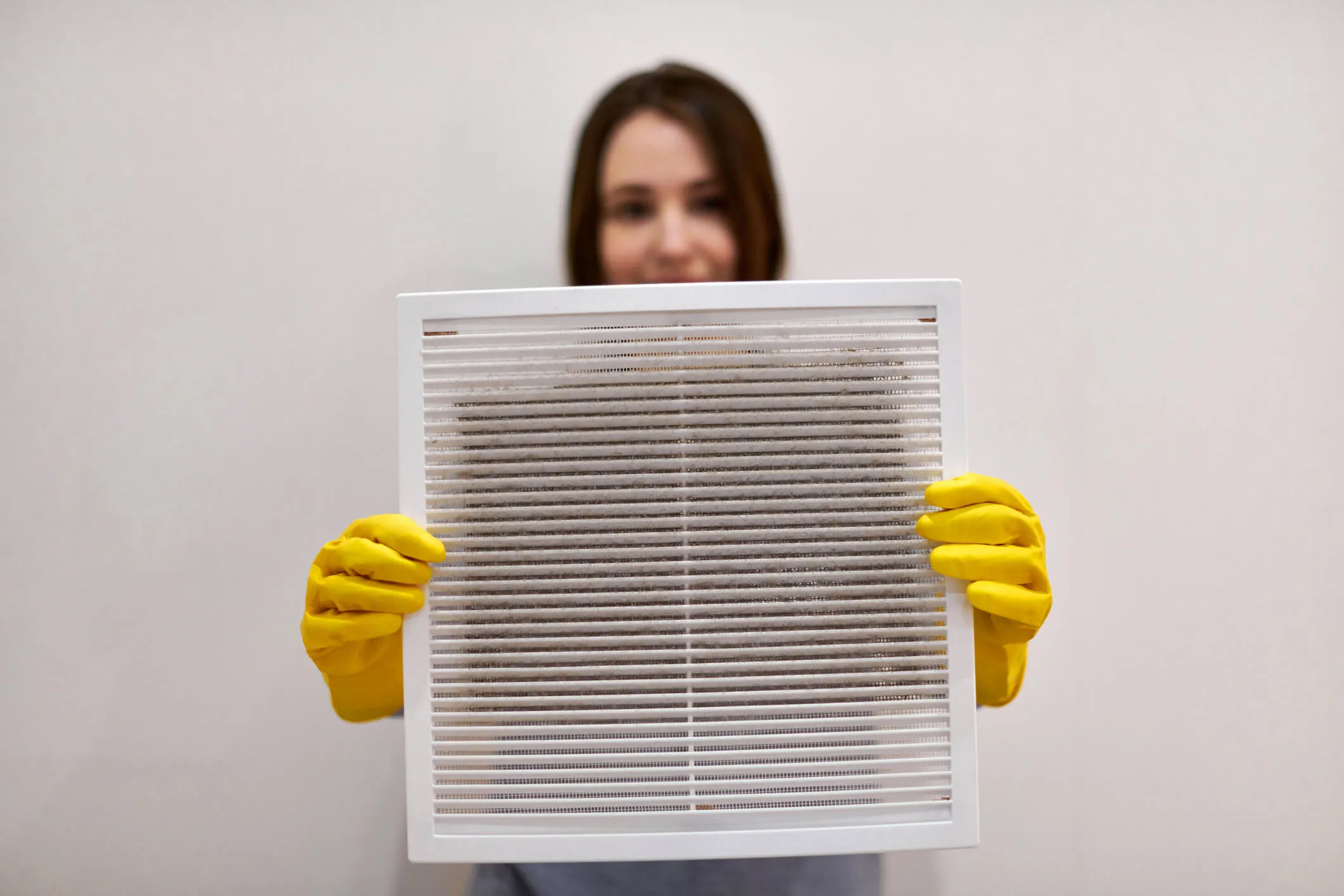Washing the HVAC Air Filter and Why It’s Helpful
How long has it been since you checked your air conditioner filter? As a rule of thumb, you should inspect it every month and clean or replace it when it looks dirty. We’ll share details about the different types of AC filters, why they need regular maintenance and detailed instructions on how to clean reusable filters correctly.
Types of AC Filters
Your filter type affects indoor air quality, ventilation efficiency and whether you can wash or swap it out when it becomes old. Here’s an overview of some common models:
- Disposable filters are usually made of fiberglass and a paper frame. These filters are meant for short-term use and are best changed every 1 to 3 months. They are generally inexpensive and simple to install but less environmentally friendly because they generate waste.
- Reusable filters have stronger frame materials like aluminum or plastic. These filters can be washed and reused multiple times, and can last several years if maintained correctly. They are more environmentally friendly and cost effective over time. On the other hand, washing them takes more time and effort than simply replacing a disposable model.
- Electrostatic filters use static electricity to capture airborne particles quickly while ensuring airflow. These can be either disposable or reusable. Reusable electrostatic filters will need regular cleaning to maintain their effectiveness.
- HEPA filters, or high-efficiency particulate air filters, are the most effective filters of all, capturing 99.97% of airborne particles as small as 0.3 microns. Most HEPA filters are single use, but they last for up to one year before requiring replacement. While they provide superior filtration, they are costlier and may not be compatible with all HVAC systems.
Why Clean or Change the AC Filter? 4 Key Reasons
It’s a simple chore to forget about, but rinsing or replacing your AC filter is a key part of overall system maintenance for a few reasons:
- Improved air quality: A new filter traps dust, pollen, pet dander and other pollutants, keeping your indoor air cleaner and contamination free. This benefit is especially vital for people with allergies, asthma or other health conditions that restrict breathing.
- Energy efficiency: If you never clean or change the filter, the dust and debris slowly filling it it makes the AC to strain even more. A fresh filter optimizes airflow, reducing the unit’s workload and putting a stop to an increase in your energy bills.
- Extend the system’s life span: Regularly washing the filter can help keep the system from overheating, decreases wear and tear, and can even prolong your unit’s lifespan!
- Saving money: A new filter saves money by cutting your energy bills, limiting damage and minimizing the risk of premature replacement costs.
Your Guide to Cleaning Your AC Filter
Apply these steps every one to three months to enjoy all the advantages of a clean air filter:
Prepare: First, shut off the AC unit to avoid electrical hazards. Then, find your AC filter. It is usually in the return air duct, in the air handler cabinet or inside of the unit itself.
Remove the filter: Carefully take out the filter from the slot. Look it over for holes or tears. If the filter is visibly damaged, go ahead and toss it.
Vacuum the filter: Grab the brush attachment on your vacuum cleaner to remove dirt, hair, fibers and other loose debris.
Wash the filter: Take the filter outdoors and spray it down with a garden hose. For a deeper clean, apply a mild detergent.
Dry the filter: Lay the filter out to dry completely before placing it back. Before that happens, do not turn on your air conditioner or you risk bringing more dust particles inside.
It’s important to note that disposable filters should not be washed. They must be replaced when they become clogged with dust. The replacement filter should be the appropriate size to confirm compatibility with your AC unit.
Additional Components of an Air Conditioning System to Maintain
In addition to the filter, additional AC components need consistent maintenance for peak results and longevity. Call an HVAC professional for help cleaning parts like:
- The evaporator coils inside the air handler remove heat from the air. Over time, these coils accumulate a lot of dust, which reduces heat transfer efficiency. Professionals employ a commercial-grade coil cleaner to remove dust and grime.
- The condenser coils within the outdoor system release heat removed from your home. These coils are exposed to the elements and can get dirty quickly. Although you can lightly rinse off dirt, leaves and other debris using a garden hose, leave more in-depth seasonal maintenance to a professional.
- The fan blades in your AC unit will also collect dust and dirt. An HVAC technician will inspect the fan as part of an annual tune-up, wiping down and aligning the blades as required to restore regular operation.
- The condensate drain line in your AC unit can become clogged up with algae, mold and debris. Should this happen, contact a certified contractor to restore the drain line using a strong cleaning solution or algaecide treatment.
Schedule AC Maintenance Help
Regularly cleaning your AC filter and other parts of your air conditioner promotes smooth operation and healthier indoor air quality. Enercare A1 Chesney is ready to help. Our certified technicians deliver quick, long-lasting solutions to all your air conditioning concerns. To schedule your next AC maintenance appointment, please contact us today.



